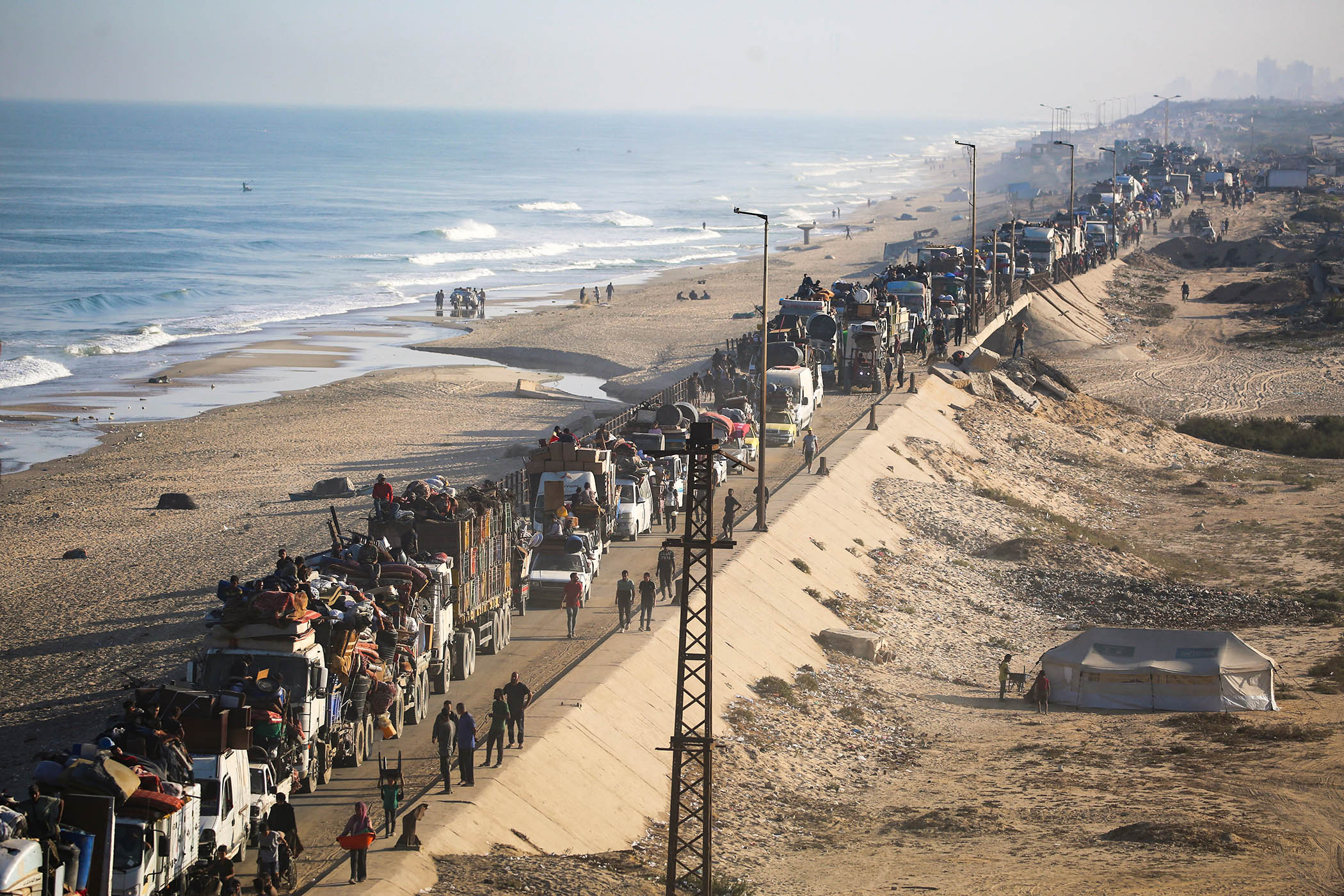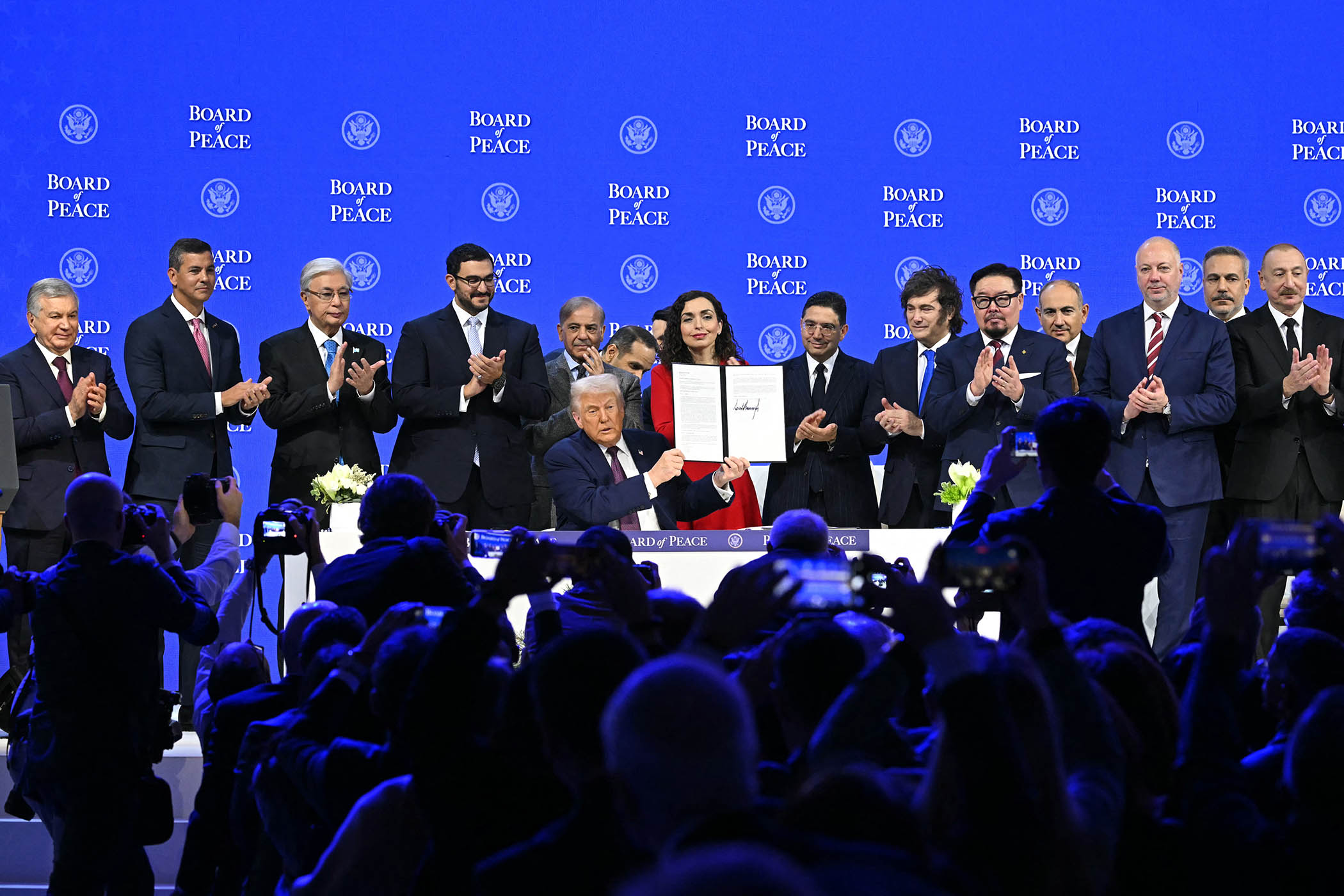The prime minister will today recognise Palestine as an independent state, arguing that the international community has a moral responsibility to act, amid growing consensus that Israel is committing genocide in Gaza.
Ahead of a high level conference on Palestinian statehood at the UN general assembly, Keir Starmer will signal that the recognition of statehood is key to resolving a conflict that has plagued the Middle East for more than 80 years.
International support for statehood has been building as condemnation mounts over Israel’s devastation of Gaza. Nearly two years since Israel invaded the enclave, more than 65,000 Palestinians have been killed in a military campaign that a UN commission of inquiry last week called genocide.
Israel has vowed to prevent the emergence of a Palestinian state at all costs. Prime minister Benjamin Netanyahu has reacted furiously against the moves to recognise statehood, saying they “reward terror” following the 7 October attacks by Hamas in 2023, in which 1,200 people were killed and a further 251 taken hostage. The US, Israel’s strongest ally, also opposes the move.
The UK shifted its position on the issue in July, shortly after Emmanuel Macron announced that France would recognise Palestine as a state. Downing Street said it would follow suit unless Israel agreed to a ceasefire in Gaza and committed to longterm negotiations on a two-state solution. It also demanded that Israel renounce intentions to annex the occupied West Bank and take steps to alleviate the humanitarian crisis in Gaza.
Alongside the UK and France, Portugal, Canada and Australia are also poised to recognise the Palestinian state
Alongside the UK and France, Portugal, Canada and Australia are also poised to recognise the Palestinian state
The situation has only worsened since then. The UN declared a famine in Gaza last month, and Israel has now launched a fresh offensive in Gaza, with Netanyahu seeking “total victory”.
As world leaders prepared to gather at the UN general assembly, Israeli tanks were advancing into Gaza City, forcing hundreds of thousands of Palestinians who have already been displaced multiple times to flee again. Alongside the UK and France, Portugal, Canada and Australia are also poised to recognise Palestinian statehood, joining around three-quarters of the UN’s 193 members that already do. Palestine has the status of a “permanent observer state” at the UN, allowing it to participate but not vote.
Palestinian president Mahmoud Abbas will address the annual gathering by video link after the Trump administration refused to grant him a visa to travel to New York.
Related articles:
During his state visit to the UK last week, Donald Trump said the question of Palestinian statehood was one of the few on which he and Starmer disagreed.
Starmer waited until the US president had left the country before making the announcement. Kemi Badenoch, the Conservative leader, echoed the US and Israel in accusing the prime minister of giving Hamas a “reward for terrorism”.
Newsletters
Choose the newsletters you want to receive
View more
For information about how The Observer protects your data, read our Privacy Policy
The principle of Palestinian statehood has been Labour policy for more than a decade, but Starmer had previously kept to the traditional Foreign Office line that the UK only recognises states that exist.
Although the move is largely symbolic, it is an attempt to keep alive hopes for a two-state solution, with Israel and Palestine co-existing. Government sources said there would be no practical legal implications.
Starmer will stress that Hamas must release all hostages, agree to an immediate ceasefire, accept it will have no role in governing Gaza and commit to disarmament. It is expected that the government will set out the next steps on sanctions on Hamas in due course.
During a speech at the UN in July, former UK foreign secretary David Lammy said the UK bore a “special burden” of responsibility to support the two-state solution, citing the 1917 Balfour Declaration that helped lay the ground for the establishment of the state of Israel. The Balfour Declaration contained a promise not to prejudice the rights of existing non-Jewish communities in Palestine.
Photograph by Eyad Baba/AFP/Getty




